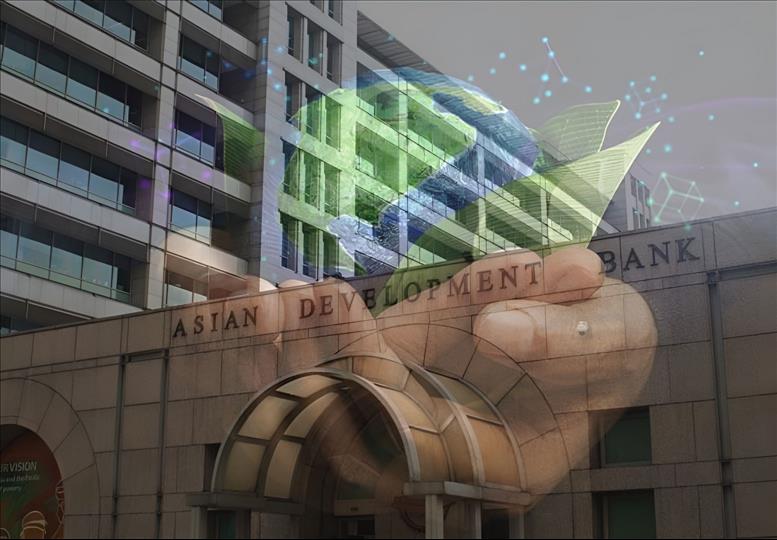
ADB's Climate Finance Incentivises Azerbaijan's Green Energy Initiatives
In the wake of last week's landmark announcements at the COP29, the Asian Development Bank (ADB) has reaffirmed its position as a vanguard in global climate finance. Amid a historic gathering in Baku, ADB outlined its roadmap for scaling up investments to tackle the intensifying climate crisis, signaling a transformative era in international cooperation and green energy leadership.
Building momentum on COP29
Last week, a coalition of multilateral development banks (MDBs), including the ADB, pledged to inject $120 billion annually into climate finance for low- and middle-income countries by 2030. Of this, $42 billion is designated for adaptation initiatives, aimed at building resilience in some of the world's most vulnerable regions. High-income nations will also benefit from $50 billion annually, alongside an ambitious goal of mobilizing $65 billion from private sector investments.
Hosted by COP29 President Mukhtar Babayev, the high-level discussions emphasized the need for transformative financial commitments. Babayev described the gap between current funding levels and the scale of the crisis as "clear and urgent," calling for innovative mechanisms to address global climate challenges.
In the days following these commitments, ADB announced further strides in its climate finance strategy. The bank pledged to allocate 50% of its annual financing to climate-related projects by 2030, part of a broader goal to provide over $100 billion in investments between 2019 and 2030.
This commitment is exemplified by ADB's recent loan agreements with Masdar to construct two major solar power plants in Azerbaijan. Expected to triple Azerbaijan's solar energy capacity, these projects underscore the bank's focus on renewable energy as a cornerstone of sustainable development.
Speaking on the MDBs' collaborative vision, ADB's leadership highlighted the synergy between multilateral and private sector investments, with President Babayev adding that "financing beyond traditional frameworks is essential to meet the escalating demands of a warming planet."
Green initiatives and a new paradigm for global climate finance
The announcements in Baku mark a pivotal shift in climate finance strategies, with MDBs exceeding their 2025 targets for direct climate investments. Over the past year, direct climate finance increased by 25%, while efforts to mobilize additional funds have doubled. ADB's initiatives reflect this momentum, reinforcing its leadership role within the coalition. The bank's solar projects in Azerbaijan are emblematic of its commitment to both mitigation and adaptation, offering a blueprint for the energy transition in emerging markets.
In addition, it is important to add that, ADB aims has repeatedly stressed the importance of establishing a sustainable energy corridor that facilitates the transmission of renewable energy from Kazakhstan, Uzbekistan, and Azerbaijan to European markets. With Baku serving as a platform for forging innovative solutions, the ADB and its partners are setting the stage for unprecedented cooperation. ADB has also allocated $250 million to support Uzbekistan's climate transition, focusing on strengthening resilience in the water sector and other critical areas. By leveraging multilateral resources, fostering private sector engagement, and implementing high-impact projects, the MDB coalition is charting a course toward a sustainable and resilient future.
In this case, the idea of green initiatives sheds light on the Middle Corridor as well. In transforming the Middle Corridor into a green corridor, in his interview with Azernews , James Leather, Director of the Emerging Areas Transport Sector Office at the Asian Development Bank (ADB) noted the importance of long-term investments and multimodal transport solutions:
"The growth in demand between Asia and Europe and within the region itself will continue to grow. One of the big concerns I have is that the demand for that movement of freight or even passengers is far outstripping any investments that are being made. What we do need to position ourselves is what it's likely, those demands, what will they be in 2050, and start the investments now, but at the scale required to serve those future demands. The Middle Corridor will provide a connection from ports to rail to road networks, so we need to look at many different forms of transport... You're only as strong as your weakest link."
ADB's efforts, both in Azerbaijan and beyond, demonstrate that climate finance is not merely a financial endeavor-it is a profound commitment to global equity and innovation.
Legal Disclaimer:
MENAFN provides the
information “as is” without warranty of any kind. We do not accept
any responsibility or liability for the accuracy, content, images,
videos, licenses, completeness, legality, or reliability of the information
contained in this article. If you have any complaints or copyright
issues related to this article, kindly contact the provider above.

















Comments
No comment